Schedule a Call Back
The foundry industry in India
 Technical Articles
Technical Articles- Nov 30,-1

The foundry industry in India is the third biggest globally, with over 10 million TPA of cast components in ferrous and non ferrous category as per various international standards.
T he Wikipedia describes casting as a manufacturing process in which a liquid material is usually poured into a mould, which contains a hollow cavity of the desired shape, and then allowed to solidify. The solidified part is also known as a casting, which is ejected or broken out of the mold to complete the process. The online information repository also informs that casting is a 6000-year-old process and the oldest surviving casting is a copper frog from 3200 BC.
The foundry industry in India is the third biggest globally, behind China and USA. According to a forecast by TechNavio, a leading market research company with global coverage, the foundry market in India is set to grow at a CAGR of 19.67 per cent over the period 2014-2018. Castings are produced in foundries through a manufacturing process in which molten or liquid metal is poured into a mould made of sand, metal, or ceramic, which contains a hollow cavity of the desired shape, to form geometrically complex parts. All major metals can be made into castings, and the most common ones are iron, aluminum, magnesium, zinc, steel, and copper-based alloys. Castings can also be made of various cold setting materials that cure after mixing two or more components together, e.g., epoxy, concrete, plaster and clay. Casting is most often used for making complex shapes that would be otherwise difficult or uneconomical to make by other methods. Metal castings find applications almost all industries.
The Indian foundry industry manufactures metal cast components for applications in automotives, tractors and other farm equipment, railways, machine tools, sanitary, pipe fittings, defence, aerospace, mining and earth moving machinery, textile, cement, electrical, power machinery, pumps/valves, wind turbine generators, etc.
According to The Institute of Indian Foundrymen (IIF), the apex national industry body for the Indian foundry industry, the Indian foundry industry has a turnover of approx USD 19 billion with exports of approx USD 2.5 billion.
There are approximately 5000 foundries in India, which are largely in the MSME sector, with a handful of major players, located in various foundry clusters. The average productivity per unit is 2173 TPA. Each cluster is known for a particular speciality in terms of the range of products manufactured. For example, the Coimbatore cluster is famous for pump-sets castings, the Kolhapur and the Belgaum clusters for automotive castings and the Rajkot cluster for diesel engine castings, Howrah cluster for sanitary castings, etc. The major foundry clusters in India are located at Batala, Jalandhar and Ludhiana in Punjab; Rajkot and Ahmedabad in Gujarat; Faridabad and Gurgaon in Haryana; Howrah in West Bengal; Agra in UP; Pune, Kolhapur and Solapur in Maharashtra; Belgaum in Karnataka; Chennai and Coimbatore in Tamilnadu; and Hyderabad in Telengana. Some of these clusters have been formed under IIUS – Industrial Infrastructure Upgradation Scheme of the Union Ministry for Commerce & Industry.
The IIF has also initiated steps to establish some common facilities in clusters for the benefit of the foundries, most of which are in the SME segment and hence cannot set these up individually. Such facilities include: common training facilities and testing labs – optical emission spectrometer and 3D CMM machine; common interactive portal and ERP software package for members; vendor/supplier development programme and collective procurement where possible; modern tool room; 3D modelling and ERP/CAD CAM solutions; rapid product development, etc. Other facilities include initiating measures to promote green and clean environment and sand reclamation and recycling. Shortage of sand due to banning of mining activity in several states is another vital issue affecting the industry.
Skill development is yet another of IIF’s important initiatives. For an industry that employs 500,000 persons directly and another 15,00,000 indirectly, there is a lack of systematic training programmes in this labour intensive industry that mainly depends on socially and economically weaker sections of the society for its labour requirements. There are very few Indian institutes provide specialised training in foundries and metal casting. The National Institute of Foundry and Forge Technology at Ranchi is a prominent one. In Coimbatore the PSG group offers training and skill development programmes for the foundry industry along with other industry segments. In Gujarat the Nirma University at Ahmedabad offers an advanced diploma in foundry technology. Another organised effort is at Kolhapur where the Maharashtra government has adopted a polytechnic that offers foundry related courses. Apart from this the IIF has initiated several training programmes for foundry workers on a pan India basis, taking training at the doorsteps of foundries, also arranging for instructions by trainers in local languages for better understanding. This initiative will cover 9 modules and 1000 workmen initially in 2106, and will be upscaled to include 5000 workmen by 2017.
Indian foundries currently produce over 10 million TPA of cast components in ferrous and non ferrous category as per various international standards. It is about 10% of the global production by weight. The products range in size from a few grams to over 100 tonnes per piece for various applications. The Indian foundry industry has gradually risen from No. 5 to become the 3rd largest globally, having grown by over 43% since 2008. The country exports castings worth USD 2.2 billion annually and there is a huge potential to improve the market share in exports, which could grow three-fold. India also imports castings worth approx USD 900 million annually, and about a fourth of these come from China.
The new manufacturing policy envisages the increase in the share of manufacturing in the GDP to 25% from current 15% and to create 100 million additional jobs in next 10 years. Since all engineering and other sectors use metal castings in their manufacturing, the role of foundry industry to support manufacturing is very vital. It is not possible to achieve the above goal without the sustainable corresponding growth of the foundry sector.
Related Stories
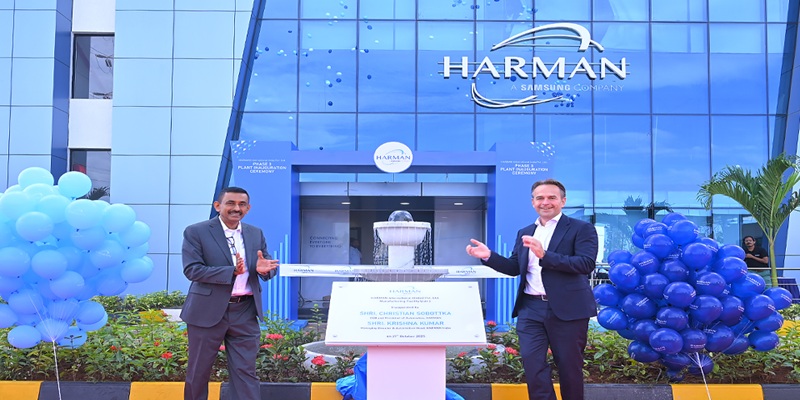
HARMAN invests Rs 3.45 Bn to expand Pune plant for connected sustainable mobility
HARMAN invests Rs 3.45 billion to expand its Pune plant, boosting capacity by 50 per cent, creating 300 jobs, and advancing 5G telematics and sustainable manufacturing for global automotive markets.
Read more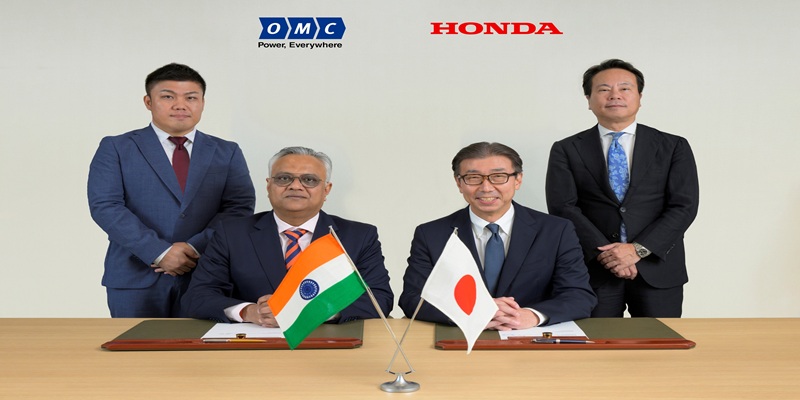
OMC Power Attracts Investment from Honda Motor, Targets 1 GWp RE Capacity
The partnership unites Honda’s technology with OMC’s rural reach to drive a 1 GWp clean energy goal and advance battery repurposing innovation.
Read more
IMTMA’s MTX Connect Jamshedpur to showcase latest machine tool technologies
IMTMA and CII will host the third edition of MTX Connect in Jamshedpur on 3–4 November 2025, offering machine tool makers a platform to connect with industries across eastern India.
Read moreRelated Products
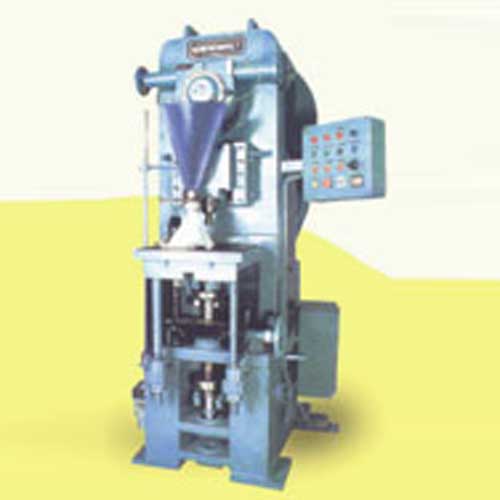
Powder Metallurgy/pressfast Powder Compacting Press
<p>New Met Pvt Limited offers a wide range of powder metallurgy/pressfast powder compacting press.<br></p> Read more
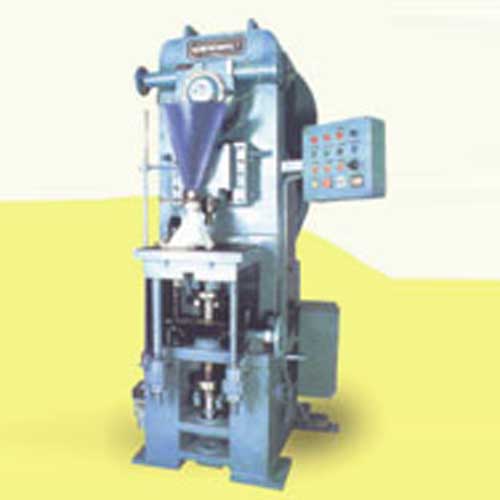
Powder Metallurgy/pressfast Powder Compacting Press
New Met Pvt Limited offers a wide range of powder metallurgy/pressfast powder compacting press.
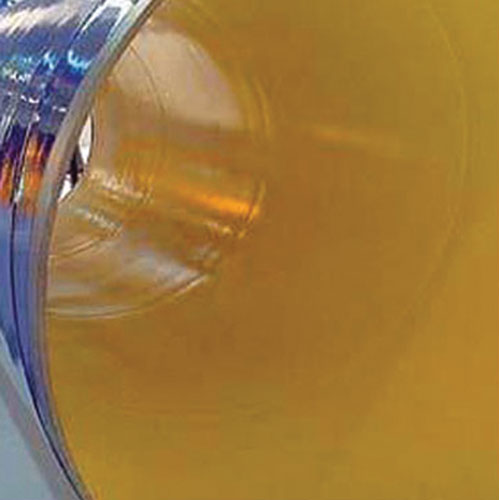
Corrosion Protection Materials
Shri Balaji Industries manufactures corrosion protection materials.













